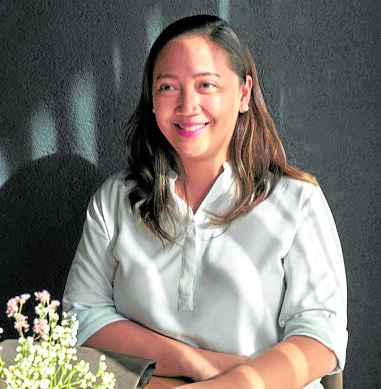PH food firms urged to adopt safety solutions to operate in the ‘new normal’
Know the infection risks, put in place the necessary safety protocols, train and retrain staff to keep them updated on the latest COVID-19 prevention measures—and have a manager who can oversee the implementation of all of these.
These are the key things that food establishments should take note of as they restart their businesses amid the pandemic, advises health experts and food industry leaders in the recent webinar “Recover, Renew, Reinforce: Food Safety Solutions in the New Normal.”
“The key person in any [food] organization, when it comes to food safety or prevention of coronavirus or any other disease, is a manager in charge of infection prevention and control,” said Richard Sprenger, chair of the Highfield Awarding Body for Compliance (Middle East) Asia, a global leader in food safety certification. “[He/She is] directly responsible for managing all aspects of infection prevention and control (IP and C) within the business, including the implementation of government policy to reduce the risk of illness and prevent the spread of infection.”
But who exactly should be an IP and C manager in a dining establishment? Sprenger says it must be someone who can communicate effectively what needs to be done to minimize risk of infection—and lead by example.
“They must be trained, they must be experienced, they must be concerned with the staff, and they must work in the kitchen. But if it’s a large business, you may need to have someone at the front of house as well,” Sprenger said.
He also identified the specific characteristics and tasks of an IP and C manager:
Article continues after this advertisement• Be competent, especially in terms of knowing the infection risks within the business.
Article continues after this advertisement• See to it that IP and C policies and procedures are maintained and implemented.
• Supervise effectively to ensure safe practices.
• Make sure staff are implementing what they have learned.
• Identify infection risks and controls, and take corrective action.
• Carry out daily IP and C checks, especially for supplies (soap, paper towels, disinfectants).
• Train all employees and make sure they are competent.
• Carry out on-the-job talks/training, even for just five minutes a day.
• Keep everyone up-to-date on the latest news surrounding Covid-19.
“Remember, the situation changes all the time, and therefore advice [on IP and C] changes, too,” Sprenger said. “What may work today may not work anymore tomorrow.”
Another speaker, chef Natalia Moran of Pizza Express, also shared some of her expert advice on how to run a restaurant amid the pandemic. One of her key points: always factor in the cost of maintenance and training.
“In order for us to achieve [that ideal level of] customer satisfaction and quality, we need to allocate certain funds for these costs, which we will incur every so often,” she said.
It also helps, she said, if food establishments follow a cleaning schedule, including handwashing.
The webinar was hosted by multinational company SGS, which specializes in inspection, verification and certification of standards across industries—a company which Moran said has helped Pizza Express a lot in terms of maintaining high standards of food safety in their business.
Specifically, Pizza Express has the mark of SGS’ global Hygiene Monitored (HM) Program, which “addresses the needs of the food service, retail and hospitality sector with regards to safe practices in food safety, and the implementation and monitoring of good hygiene standards. It targets the entire premises, including areas such as kitchen, seating or supermarket aisles.”
The HM certification now covers COVID-19 risk control requirements, and establishments that carry this mark can confidently say that their premises have been successfully audited by SGS, said Andrew Booth, global technical manager–food, SGS UK. This seal basically announces to customers that a restaurant is running all the protocols necessary to stay safe from infection.
Aside from food safety in restaurants, the webinar also touched on food safety in food delivery. Simone Moraes Raszl, technical officer for food safety, health security, and emergencies at the World Health Organization Regional Office for the Western Pacific, emphasized that there was no evidence of COVID-19 being transmitted through food; it only spreads from person-to-person contact.
However, she also said that the virus can stay on objects and surfaces, so to be safe, wash your hands with soap and water after accepting food or grocery deliveries.
Other topics covered by the webinar included the Philippine government’s guidelines on restaurant safety; and the benefits of having a food safety system in place for both dining establishments and home-based food businesses. These were tackled by speakers Arturo Boncato Jr., Tourism undersecretary for Tourism Regulation, Coordination and Resource Generation; Marie Camille Benesa-Castillo, OIC-assistant director of the Department of Trade and Industry-Consumer Protection Group’s Consumer Policy and Advocacy Bureau; and Mark del Rosario, founder of local online community Let’s Eat Pare. —ANNELLE TAYAO-JUEGO


